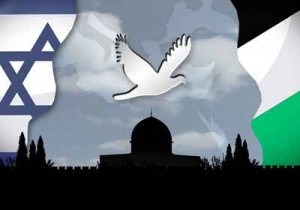Israeli Scene
News + Politics
Letter from Jerusalem: Change We Can’t Believe in

November 15. When people ask me why the Arab-Israeli conflict is so misunderstood, the best and simplest way to explain is by citing the central problem; the contrast between reality and what seems logical to those who live in a far-off land that operates by different political rules, have little knowledge of the issues or have drawn their information from media accounts.
It is logical, but totally misleading, to see the conflict in the following manner:
• Israel has won all the wars, controls the territories and enjoys the fruits of victory—land, independence and prosperity. The Palestinians are suffering miserably. All they want is a land of their own. Therefore, the conflict can be easily settled: Give them a state and everyone will live happily ever after. Issues like borders, security, refugees and Jerusalem are easily settled.
• Why isn’t the conflict over? Because Israel is well off and does not want peace as a result, while the Palestinians are eager to end the conflict and be happy.
• And/or, because no one has come along who is smart enough or has some clever formula to resolve the issue with a win-win solution in which everyone is happy and at peace.
The missing element here, however, is that the Palestinian leadership is not, and has never been, eager for any resolution. Its top priority has been total victory, possession of the entire land, with Israel’s disappearance from the map. If this seems to be an overstatement, it is because Palestinian politics and society are quite different from, say, that of the United States.
The evidence that proves this proposition about unreadiness for peace is evident not only in history but in every television broadcast, radio clip or newspaper report; every textbook; every sermon; and every speech by leaders that comes out of Palestinian institutions. This is not necessarily what is expressed in English, when interviews are given to Western reporters, but it is about 99 percent of the output in Arabic.
And the great majority of Israelis, wherever they are on the political spectrum, know this.
For the Palestinian Authority and its governing party, Fatah, the goal is the transformation of all of the land into a Palestinian, Arab and Muslim state. For Hamas, it is the transformation of all of the land into an Islamist Palestinian state that is also Arab.
Does every Palestinian believe this? Not at all. But to function and succeed in politics, it is almost impossible to reject such a goal. When individuals do come out with moderate statements—as happened when on October 13, Yasser Abed Rabbo’s stated that the Palestinian Authority might accept Israel as a Jewish state—they are quickly shouted down, threatened and ultimately back down.
But all of this makes sense, in a way. After all, if you believe total victory is possible and that anything less is unjust, cowardly, treasonous and even heretical, you are not inclined to want a compromise peace or to let anyone else make one.
What, then, are the factors that prevent moderation and compromise, responses that would seem (to a Western observer) logical for the losers and underdogs, the occupied and poorer side in a conflict? I will answer that by briefly listing and discussing a long list of such factors, almost none of which ever make it into the media or academic literature.
They include:
• Even after all these years, there is profound misinformation and miscomprehension about Israel, viewing it not as a real country but as one that cannot last. Kill enough Israelis, damage the economy, cut it off from Western allies, and it is believed that Israel will crumble. Radicalism is enhanced by a monopoly on information in the hands of a political and clerical elite. Material benefit is not important to this movement: Who cares if the people are suffering—the leaders live in relative luxury.
• Religious and political ideology, believing that the creator of the universe is on your side, guarantees victory. The idea that the proper organization of a revolution—the power of the aroused masses will defeat superior technology—is also a heady concept.
• A political system in which the most militant wins, if necessary by flourishing a gun and threatening to kill dissidents, and in which moderates are branded as traitors, is very effective in inhibiting an alternative approach.
• Poor leadership—first by the wacky Yasser Arafat and now by the weak Mahmoud Abbas, the P.A. leader—has prevented what has happened in many other movements: a strong, competent leader persuading the people of what they must do. While Abbas is relatively moderate in Fatah terms, the majority of its leaders are quite hard line.
• There are also some easy rationales. For example, a peace agreement with Israel can only be made if it would not block a “second round” in which a Palestinian state tries to destroy Israel. Of course, that kind of agreement would never be acceptable to Israel. The P.A. has always rejected the idea that a peace agreement would explicitly be a final settlement of all claims. The last resort of all is that this generation has no right to “give up” the claim on all of Israel since, even if it cannot achieve that victory, it can be left to future generations to do so.
The peace process of the 1990s was an experiment to see if things had changed or could be changed by confidence-building measures and the creation of a state-in-the-making. The experiment failed. It showed the answer was “no.” These problems cannot be waved away by good intentions or clever peace plans. They will prevent an end to the conflict for decades until Palestinian leadership and ideology changes.









 Facebook
Facebook Instagram
Instagram Twitter
Twitter
Leave a Reply